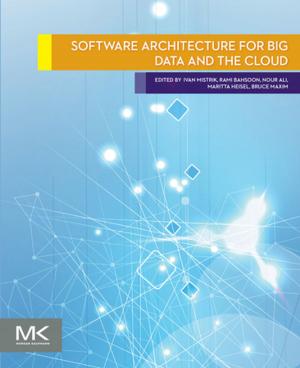Collective Action 2.0
The Impact of Social Media on Collective Action
Nonfiction, Reference & Language, Language Arts, Library & Information Services, Reference| Author: | Shaked Spier | ISBN: | 9780081005798 |
| Publisher: | Elsevier Science | Publication: | February 28, 2017 |
| Imprint: | Chandos Publishing | Language: | English |
| Author: | Shaked Spier |
| ISBN: | 9780081005798 |
| Publisher: | Elsevier Science |
| Publication: | February 28, 2017 |
| Imprint: | Chandos Publishing |
| Language: | English |
Collective Action 2.0 explores the issues related to information and communication technologies (ICTs) in detail, providing a balanced insight into how ICTs leverage and interact with collective action, which will have an impact on the current discourse. Recent events in different authoritarian regimes, such as Iran and Egypt, have drawn global attention to a developing phenomenon in collective action: People tend to organize through different social media platforms for political protest and resistance. This phenomenon describes a change in social structure and behavior tied to ICT. Social media platforms have been used to leverage collective action, which has in some cases arguably lead, to political revolution. The phenomenon also indicates that the way information is organized affects the organization of social structures with which it interoperates. The phenomenon also has another side, which is the use of social media for activist suppression, state and corporate surveillance, commodifi cation of social processes, demobilization, or for the mobilization of collective action toward undesirable ends.
- Analyzes social media and collective action in an in-depth and balanced manner
- Presents an account of avoiding technological determinism, utopianism, and fundamentalism
- Considers the underlying theory behind quick-paced social media
- Takes an interdisciplinary approach that will resonate with all those interested in social media and collective action, regardless of fi eld specialism
Collective Action 2.0 explores the issues related to information and communication technologies (ICTs) in detail, providing a balanced insight into how ICTs leverage and interact with collective action, which will have an impact on the current discourse. Recent events in different authoritarian regimes, such as Iran and Egypt, have drawn global attention to a developing phenomenon in collective action: People tend to organize through different social media platforms for political protest and resistance. This phenomenon describes a change in social structure and behavior tied to ICT. Social media platforms have been used to leverage collective action, which has in some cases arguably lead, to political revolution. The phenomenon also indicates that the way information is organized affects the organization of social structures with which it interoperates. The phenomenon also has another side, which is the use of social media for activist suppression, state and corporate surveillance, commodifi cation of social processes, demobilization, or for the mobilization of collective action toward undesirable ends.
- Analyzes social media and collective action in an in-depth and balanced manner
- Presents an account of avoiding technological determinism, utopianism, and fundamentalism
- Considers the underlying theory behind quick-paced social media
- Takes an interdisciplinary approach that will resonate with all those interested in social media and collective action, regardless of fi eld specialism















